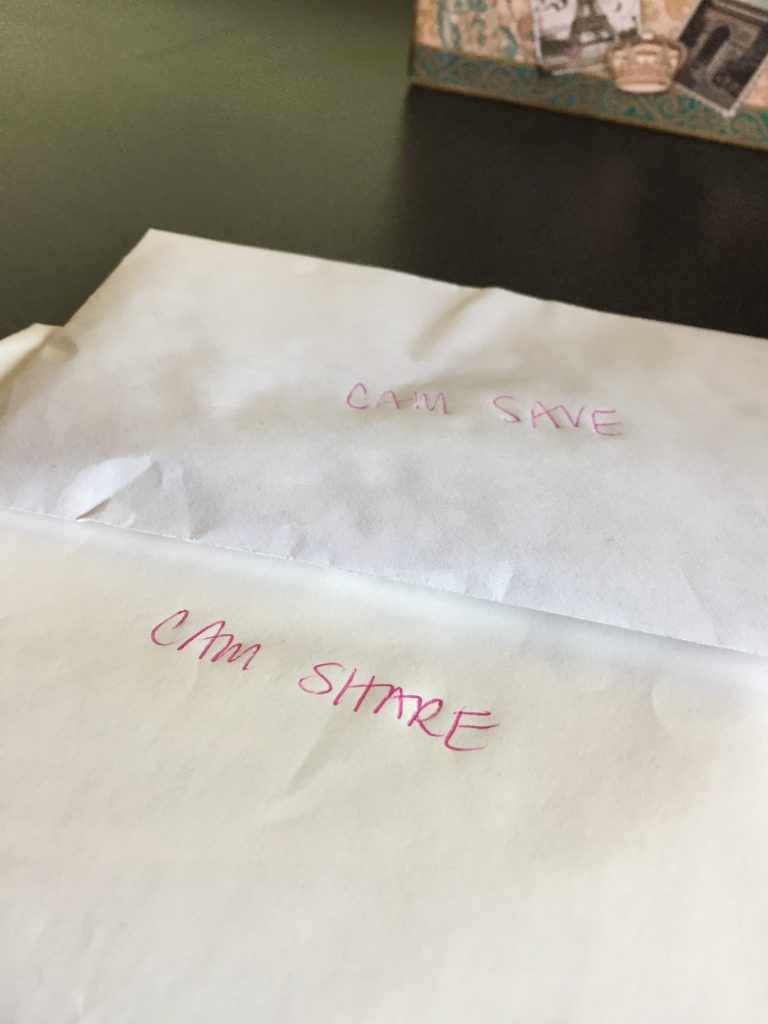My college aged daughter called the other night and wanted to interview me for a personal finance class she’s taking – isn’t that a cool class for college seniors?
It was interesting to think about my financial training, which happened entirely in adulthood. My parents didn’t talk to me much about finances until I had a job; personally, I’d love to see these types of life skills classes start as early as middle school!
I thought it would be interesting to share some financial tips here, and hopefully, help some other young person just starting out.
How To Track and Control Your Family Finances
One of the keys to creating and sticking to a budget is having a reliable and sustainable system for tracking your family’s financial transactions. Most people have moved on from the traditional methods such as handwritten ledgers and balanced checkbooks, but even in the digital age, it’s essential to record your income and spending. If you are wondering what the best method is, here’s the answer: whatever system works for you. When you like a particular system, you are much more likely to continue using it. If you’re looking for the right system for your family, here are some options.
Cash Envelopes
Made popular by financial advisor Dave Ramsey, the cash envelope system is designed to help people stick with a budget instead of overspending on credit cards. Essentially, once you plan your budget for the month, you divide cash into physical envelopes earmarked for specific spending: bills, groceries, utilities, and discretionary, for example. Many people find it easier to limit their spending when they can see the amount of cash remaining in the envelope. I started this system with my kids when they were little – part of their money would go to spending, another to saving and one more envelope for sharing.
Digital Envelopes
If you prefer to use cards instead of cash, you can choose a variation of the envelope system. You create your own digital versions of envelopes in your bank account or on paper, categorize your purchases as soon as you make them, and keep a running total of how much money you have left in each virtual envelope. There are also some budgeting programs that are based on an envelope system, so you can use one of these if you don’t want to create your own.
Designated Credit Cards
Do you have a credit card that provides a reward system for purchases? You can put this to good use, especially if you have the self-discipline to stay within your financial limits and avoid using the card for frivolous purchases. Consider using your rewards card to pay your monthly bills. You may not be able to use it for your mortgage or rent payment, but paying for your cell phone, TV, Netflix, gas, groceries, and other recurring bills can add up to large rewards. Just make sure you pay off the entire care balance every month.
Automatic Bill Pay
If you love the idea of automating your expense tracking rather than taking a couple hours every week to balance a digital checkbook, look into options for automatically paying your bills. Find out if your bank offers an automatic bill paying service. Some services allow you to see your electronic bills through your online banking interface. Simply set up the automatic payment system to your preferences, and you can see as each bill gets paid. You’ll also have all your payment records in one place which is far simpler than going to multiple account management sites every month. Auto bill pay is one way to make sure no minimum payments get missed, and to also pay yourself with a little savings deposit every month!
Customized Spreadsheet
People who prefer the routine of manually tracking expenses may enjoy creating a budgeting spreadsheet. There are several spreadsheet programs available, including free ones, so all you need to do is decide what format works best for you. Numerous visual options, including color coding, graphs, charts, and summaries, can make it easy to see where your money is going each month.
Online Tracker
Those who like the idea of a budget spreadsheet but don’t want to create one from scratch can find several resources online. Programs such as Mint, You Need a Budget, and Inzolo essentially function as digital ledgers and require minimal time to start and maintain. Most programs begin with standard categories, such as mortgage, auto insurance, utilities, food, and entertainment, but you can modify or add categories to customize the program to your lifestyle. I like to use Quicken; once I’ve set up the categories it’s easy to import statements and categorize expenses. It saves a ton of time during tax preparation season, too!
Knowing where your money is going every month is the first step toward building a financially stable lifestyle. There are several methods for expense tracking, so you can find the one that works best for you and your family.
What kinds of financial tips would you share with young people just starting out?




One comment
How To Track And Control Your Financial Situation – Budgeting for Beginners – efinance
May 27, 2020[…] miss: How To Track and Control Your Family Finances jenniferwolfe.net… #quotes […]